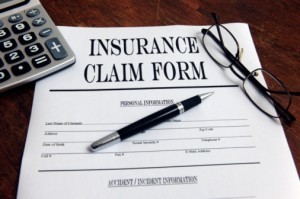

Six Steps to Take When Filing an Insurance Claim after a Florida Car Accident
 If you have been involved in a Florida automobile accident that caused injury, death, or more than $500 worth of damage, you are required to report it to police. If there have been property damage or personal injuries in a car accident, there will be expenses. Car insurance is meant to help pay these expenses.
If you have been involved in a Florida automobile accident that caused injury, death, or more than $500 worth of damage, you are required to report it to police. If there have been property damage or personal injuries in a car accident, there will be expenses. Car insurance is meant to help pay these expenses.
Essentially, after you file an insurance claim, an insurance adjuster will review the damage and/or injuries and determine a payment in accordance with the terms of your insurance policy. Filing an insurance claim properly will enhance the probability of receiving a proper claim settlement.
It is also important that you pay close attention to and comply with changes in Florida’s Personal Injury Protection (PIP) laws that took effect at the start of 2013.
After a Florida Car Accident, You Should…
1. Report the accident properly. You must report a car accident to police if there is significant property damage and exchange information with the other driver. You should also document the accident by taking photographs.
Keep in mind: Under PIP law changes, police must complete a long-form crash report when there is an indication of pain or discomfort by any party to a crash. If your accident does not require a law enforcement report, you must submit a report on the crash to the Department of Highway Safety and Motor Vehicles within 10 days of the accident.
2. Contact your insurance carrier. Regardless of fault in an accident, you should file a claim with your insurance carrier. If fault is not assigned, your insurer should pay for property damage minus your deductible. If the other driver is at fault, your carrier will seek reimbursement from the other driver’s insurer. This may result in a refund of some of your deductible.
Note: Your insurer is authorized under the new PIP laws to require you to submit to an examination under oath. If you fail to comply, the insurer can deny your benefits.
3. Direct the other parties to your carrier. If you are contacted by the other driver’s insurance carrier (or by passengers’ insurers), advise them that you are pursuing a claim through your carrier and that your insurer will contact them. If the other party in your accident is an uninsured or underinsured motorist (UM / UIM), you may need to file a first-party claim under your own insurance policy to obtain compensation for your injuries.
4. Get medical care as soon as possible. A 2013 revision to the Florida Motor Vehicle No-Fault Law requires claimants of Personal Injury Protection (PIP) to get initial services and care from a legitimate health care professional within 14 days of the motor vehicle accident.
Please note: Due to changes in the law, you can be reimbursed for the initial services and care you receive only if:
- It is lawfully provided, supervised, ordered, or prescribed a licensed physician, osteopathic physician, chiropractic physician, or dentist, OR
- It is rendered in a hospital, a facility that owns or is owned by a hospital, or a licensed emergency transportation and treatment provider.
Any follow-up services and care will require a referral from such a provider, and it must be consistent with the underlying medical diagnosis that was rendered when you received initial services and care.
Also, if your insurer asks for an independent medical examination, you need to appear for it. If you refuse or unreasonably fail to appear for this examination, the new PIP law relieves your insurer of its responsibility for paying your benefits.
5. Be prepared to provide information. As the complexity and/or value of your claim increases, so will the insurer’s requests for information. If you are making a personal injury claim, your insurer will request information about everyone involved, accident-specific information (time, date, location), the accident report, and all medical files and bills. Create and maintain a file for all records of your accident and injury and provide copies when requested – not originals.
6. Don’t be prepared to settle. Do not sign anything your insurer or the other party’s insurer offers. If you think the settlement that your insurance carrier offers is too little, or if you are unsure about it, do not accept it. An attorney experienced with Florida car accidents can advise you if you have questions or concerns about a car accident insurance claim.
Contact a Florida Car Accident Insurance Claims Lawyer
At Philip DeBerard, Injury Attorney, we help victims of car accidents in Florida recover from their injuries and losses. We are truly dedicated to helping Florida residents in their dealings with insurance companies over claims stemming from their accident.
Since 1975, the car accident insurance claims lawyers of Philip DeBerard, Injury Attorney have investigated thousands of auto accident claims on behalf of clients in South Florida and have offices in Stuart, Port St. Lucie, Vero Beach, Okeechobee, Palm Beach Gardens and West Palm Beach. Call us today at our toll-free number or complete our online form to schedule a free consultation about your case. If you’ve been hurt, Philip DeBerard will be on your side.
Injured?
Request A Free Case Evaluation



